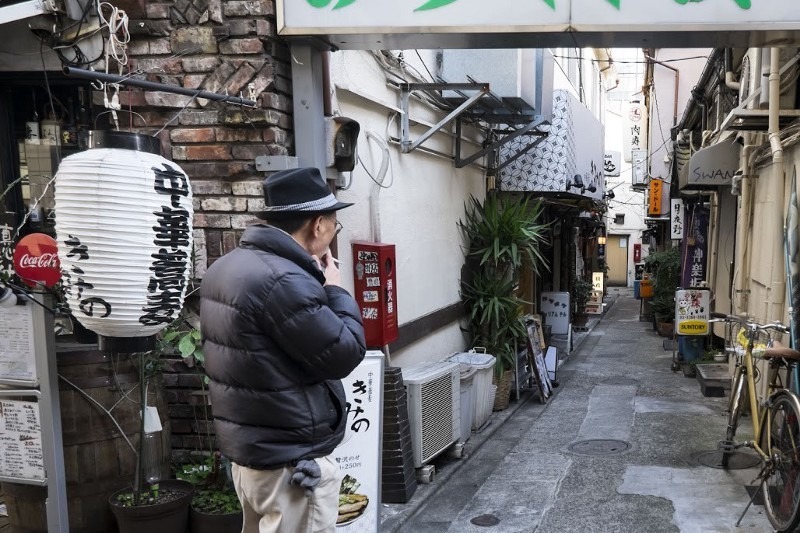Coming from a land of suburban castles, it’s sometimes a little surprising for Americans to see the relative lack of focus Japanese place on their homes as a form of self-expression. While it would not be uncommon for ordinary home owners in western countries to spend many thousands of dollars decorating their interiors with the latest furniture, fittings and decorative items, in Japan the look tends to be much more utilitarian.
The home is generally not a showplace and it is uncommon for people to invite colleagues and friends to their houses. So investing in a home to impress others is not something that tends to makes sense. On the other hand, Japanese are more willing to invest money in their personal appearance out of the home. As such, when it comes to discretionary ‘me’ spending, things like luxury bags or even luxury cars have often taken budgetary priority over their homes.
So it is with interest that I have been hearing from friends and colleagues lately about a trend towards young people holding parties at home — so-called ‘uchinomi.’ Whereas in the past younger people have always met up at izakaya, it is becoming more common to meet at friends’ houses. Drink companies such as Asahi, Calpis and pre-cooked food company Kanetetsu have jumped onto the trend, launching campaigns encouraging consumers to drink at home with their friends. As you’d expect, publishers are also getting in on the act, launching a slew of magazines and cookbooks on the subject.
While the 3/11 earthquake helped stoke the uchinomi trend because people were either stuck in their apartments or didn’t want to be seen to celebrating, it is also indicative of a wider trend in Japan for younger people to discover the joys of the home. My impression of younger Japanese working women, the legendary office ladies or OLs of yore, has generally been of a rather hedonistic, experience-seeking cohort. A good portion of their salaries seemed to be spent on eating out at the latest restaurants, jetting off on JTB package holidays to the latest trendy destination, or upgrading their old Louis Vuitton handbag to a better model. However, that is not really a valid stereotype any more.
Trend-setting younger women could be just as likely found at home spending time on Cookpad, a website and associated smartphone and tablet app devoted to peer to peer sharing of recipes. It’s a phenomenal success and some sources have quoted a penetration rate of over 40% among Japanese females in their twenties and thirties. In research our agency has done in the food category, it has emerged as the prime tool that people in Japan now use to plan their meals. Cookpad serves a very useful practical purpose in helping users to figure out what do with what’s left in the fridge or what to buy at the grocery store for dinner — one of the great questions of daily life. However its social component, where users can rate recipes, make comments or spark conversations, makes it especially compelling.
In addition to cooking, the move to focus more energy on the home is leading to greater interest in traditional cleaning techniques and ingredients. Consumers are increasingly embracing simple, natural and beautiful objects such as Edo-style hand brooms, or charcoal potted-plants with natural odour-relieving properties. These are items that not only serve a practical purpose, but are also things of beauty to be enjoyed. Alongside this, there is a greater interest in the way that things smell in the home as products such as stylish humidifiers made from naturally scented wood, or products which diffuse scents from essential oils, gain in popularity. Even scented fabric softeners such as Downy, which were for a long time seen as smelling too strong for Japanese, are gaining in popularity.
All these examples point to the home becoming a more important place to spend time and within which to create experiences. At a deeper level, this re-engagement with the “simpler-things in life” appears to reflect an opportunity to re-enforce the basic emotional security of consumers. There is a lot out there these days that scares people and so a return to the home — the creation of “my own furusato” makes a lot of sense. Even if your business is not directly connected to things consumed in the home, there is still an increasing opportunity for goods and experiences that make the consumer feel safe, whole and balanced. It would appear likely that great opportunities exists for businesses that address these emotional needs as Japanese seek to re-connect with things that comfort and sustain them in and out of the home.
24th January 2012
CarterJMRN is a strategic market research agency that has been helping clients with consumers and businesses in Japan and beyond since 1989.
We believe that, although the terrain you face in building a successful marketing strategy and activation path sometimes seems obscure, the path to success is knowable and that the consumer is the guide who will show you the way.
Find out more and get in touch on our site
